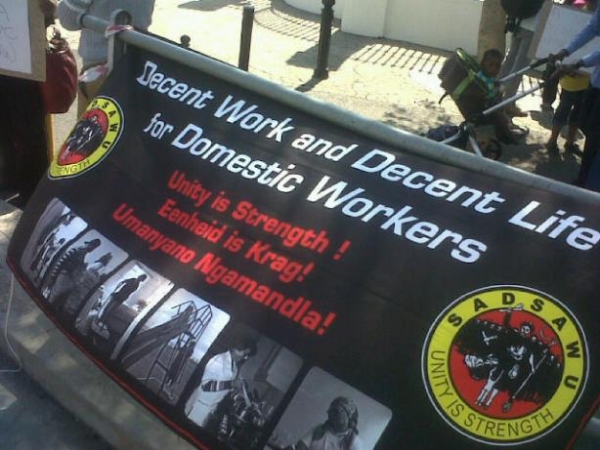A confusion of unions
Talk is of unity, but actions are divisive
The best way to describe the situation in the South African labour movement at present is that it is in a state of flux: of ongoing change in conditions of instability.
As such, a suitable collective term for the local labour movement might be a confusion of unions.
The major players, at a leadership level, are Cosatu, the National Union of Metalworkers (Numsa), the National Council of Trade Unions (Nactu), the Association of Mineworkers and Construction Union (Amcu) and the Federation of Unions (Fedusa)
Of course, all the talk is about unity. But the May Day rallies last Sunday revealed that unity is still elusive. There was the Cosatu rally in Mamelodi, the workers’ summit rally, organised by Numsa, in Thembisa, and the Amcu gathering in Klerksdorp. But while Amcu happens to be by far the largest affiliate of Nactu, the Nactu president, Joseph Maqhekeni, attended the Thembisa rally.
Fedusa took the position of wishing a plague on all the divisive houses. But then Fedusa and Nactu also comprise the SA Confederation of Trade Unions, a sort of off-the-shelf united, party-politically unaligned and putative single labour federation for South Africa.
What is clear from the Sunday gatherings is that Cosatu has no intention of budging from the positions it has held since at least 1993, when Numsa failed in an attempt to divorce the federation from an ANC in government. The Numsa argument was simple: government in South Africa is the largest employer in the land. Once the ANC became government, it would, in effect, become an employer and unions therefore would have no business being in alliance with an employer.
The ANC duly won the 1994 elections and 21 senior Cosatu members entered parliament as ANC MPs. Included in that union influx was the then Numsa general secretary, Moses Mayekiso. He left after two years complaining that he and the others who had sat on the back benches had never been consulted about any policies.
At that time the ANC was revising the macro-economic policy drawn up over years by its own Macro-economic Research Group (Merg). But the combined trade union movement took up the Merg proposals and all three federations put them forward in the Social Equity and Job Creation document. This stressed redistribution of wealth leading to economic growth.
Only weeks later, the government responded with the skimpy Growth Employment and Redistribution (GEAR) outline, based on the “trickle down” theory of growth leading to redistribution, the antithesis of the union proposals. Although there was much grumbling within Cosatu, GEAR was accepted and the alliance remained intact.
Social equity and job creation was all but forgotten. However, it still remains, officially, the policy supported by all three federations.
Here was a contradiction that clearly could not last. And part of the reason it lasted as long as it did before major schisms emerged can be attributed to the influence of the South African Communist Party (SACP). The expressed aim of this party is to take control of all the leading sectors of society, including parliament, en route to a radical stage leading to an ill-defined “socialism”.
All of this was dressed up in the rhetoric of democracy, but as unions became more bureaucratic and the influence of the SACP and Cosatu in government appeared, at best, to be minimal, tensions grew. The final gamble, as individuals such as Zwelinzima Vavi apparently see it, was the creation of the “Zuma tsunami” that carried Jacob Zuma to the presidency of both the ANC and the country.
The ascent of Zuma was supposed to signal a radical change in policy to a new, “pro-worker” orientation. It didn’t happen, eventually triggering the rather messy slanging match that saw Numsa and Vavi expelled and Cosatu unions losing members.
The cry now is for a return to shopfloor democracy; for unions to be truly worker controlled; to grow membership and to organise within communities. These are admirable aims, but there are still many obstacles to overcome, not least the issues of accountability and transparency in governance and finances, including the role of investment companies.
It should be done. It must be done, for the sake of the vast army of sellers of labour. And what must also be taken into account is the impact on workers and the communities in which they live of the digital age that could either liberate or pauperise and enslave them.
Opinions expressed are not necessarily those of GroundUp.
Support independent journalism
Donate using Payfast

Don't miss out on the latest news
We respect your privacy, and promise we won't spam you.
Next: Riot in Grabouw over housing
Previous: Medical experts question mayor giving platform to Patrick Holford
© 2016 GroundUp. 
This article is licensed under a Creative Commons Attribution-NoDerivatives 4.0 International License.
You may republish this article, so long as you credit the authors and GroundUp, and do not change the text. Please include a link back to the original article.

